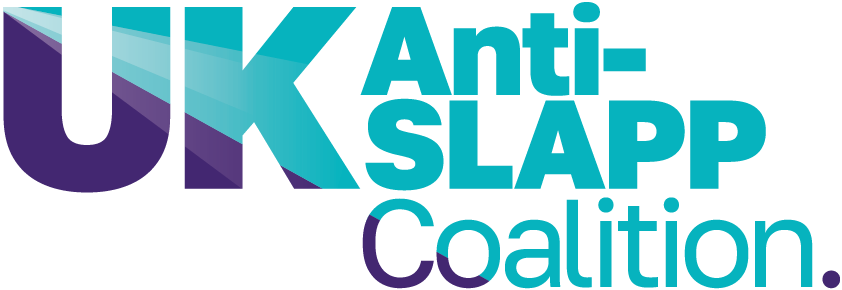Yesterday, MPs from different political parties stood up in the House of Commons to describe press reports from media outlets across the country. What made this moment unique was that each story had never been published. The reason? Legal threats prevented them entering the public domain.
Yesterday’s Backbench Business Committee debate was sponsored by Labour MP, Lloyd Hatton, to highlight the lasting impact of abusive legal threats on the public’s right to know. Shielded by parliamentary privilege, MPs from six parties across the political spectrum, brought to light stories from outlets based across the country – large and small – that had been spiked due to the legal risk.
The initiative was driven by the Bureau of Investigative Journalism (TBIJ), a UK Anti-SLAPP Coalition member, who had spent months collating the stories, fact checking them, offering right of replies and getting legal reviews. TBIJ, which has itself been subject to many legal threats, successfully overcame a two year legal challenge, as a result of its reporting on a multibillion dollar company formerly linked to Kazakhstan’s ruling elite.
Engaging with the subjects of a story is key to strong journalism and helps balance fundamental rights. Journalists reach out to those named in their articles before publication to give them a chance to respond. This process allows inaccuracies to be corrected and different perspectives to be included. However, too often, journalists receive aggressive legal letters designed to intimidate and block the story from being published. When this happens, we may never know the story ever existed or even that legal action was threatened. This all happens behind closed doors, reinforced by the heavy financial burden of mounting any defence. Without a universal and standalone Anti-SLAPP law, too much can be removed from the public record with inadequate protections for free expression and public participation.
Yesterday’s debate was an important step towards giving shape to the information removed from the public sphere. However, it was only a partial window into the issue due to the scale of abusive legal threats. TBIJ notes that even a parliamentary debate is not enough for some to speak freely. Some people who wanted to put their stories forward couldn’t take part simply because they felt the danger was too great. One publication withdrew a story about international corruption allegations because of the high risk, and because it had spent so much money on recent court cases. In other instances, different legal mechanisms blocked the stories from coming out.
SLAPPs are not directed at journalists alone. The Coalition has documented threats brought against various other groups including: sexual violence survivors speaking out to protect others, local campaigners who have been threatened for scrutinising the actions of local businesses and facebook groups trying to ensure the local community has a voice in the decisions made in their area.
There was clear cross-party consensus as to the impact of SLAPPs on free expression and public interest reporting. Many MPs spoke about the vital need to establish universal anti-SLAPP protections. Yet the government was reluctant to match this urgency. The government minister responding to the debate, Heidi Alexander MP, stated that “we do not currently intend to legislate in this parliamentary session but we are continuing our work to consider how best to tackle wider abuses of the system in the longer term.”
What this means for the timetable for reform and the government’s commitment to protect free expression is unclear. This is why today the UK Anti-SLAPP Coalition has launched a petition – supported by the National Union of Journalists (NUJ) – to enable the public to add their voice to the call for robust anti-SLAPP protections to ensure everyone who speaks out in the public interest cannot have their lives ruined by abusive lawsuits. Sign it here.
Rozina Breen, CEO and Editor in Chief of the Bureau of Investigative Journalism:
“Accountability journalism and the freedom to report in the public interest is a fundamental right. Newsrooms like The Bureau have a mandate to speak truth to power. Silenced Stories is an ambitious year-plus-long project investigating the effects of potential SLAPPs and their use in the prevention of public interest stories getting published. Our aim is to expose the damage they do to democracy by suppressing truth, transparency and accountability. Transparency is the bedrock of any functioning democracy. I am proud that The Bureau is playing its part in supporting media freedom and the right to report truth.”
Nik Williams, Campaigns and Policy Officer at Index on Censorship and co-chair of the UK Anti-SLAPP Coalition said:
“It is vital that we give shape to the stories, voices and experiences that have been erased due to abusive legal threats. Every story spiked is something that is removed from the public record. For democracy to function we all must be able to access the information we need to make an informed decision about the world around us. In this way, SLAPPs target not only the recipient of aggressive legal letters but all of us. We are all targeted by the wealthy, powerful and thin-skinned and so we must be protected without delay.”
Susan Coughtrie, Director of the Foreign Policy Centre and co-chair of the UK Anti-SLAPP Coalition said:
“This important debate highlights the insidiousness of SLAPPs – if successful, they create a complete vacuum of information, where stories like this never find their way into the public domain. Time and again we see how SLAPPs can prevent or seriously delay issues of public importance being redressed, often resulting in far greater harm being caused. We urgently need to redress the balance through a standalone anti-SLAPP law, which would give journalists, and other SLAPP targets, greater confidence that they can defend their reporting without facing potentially life altering financial penalties.”
